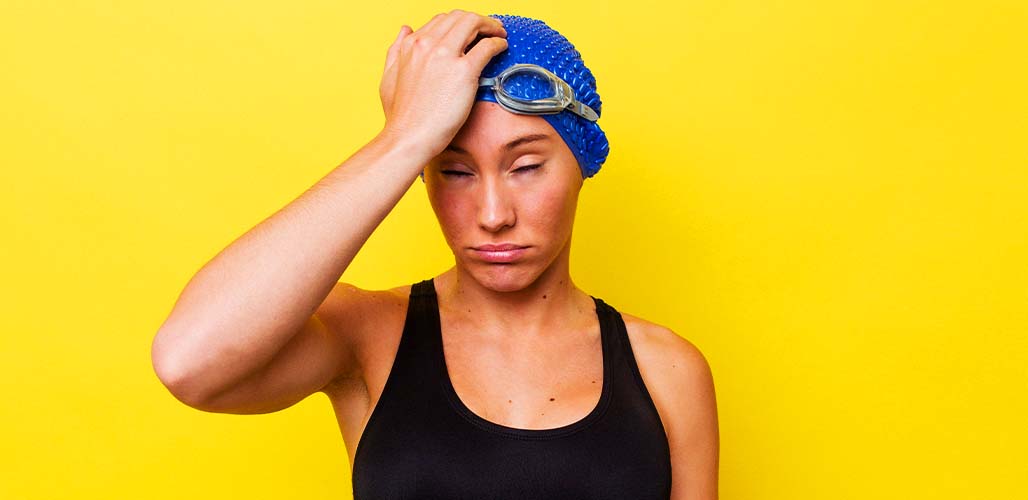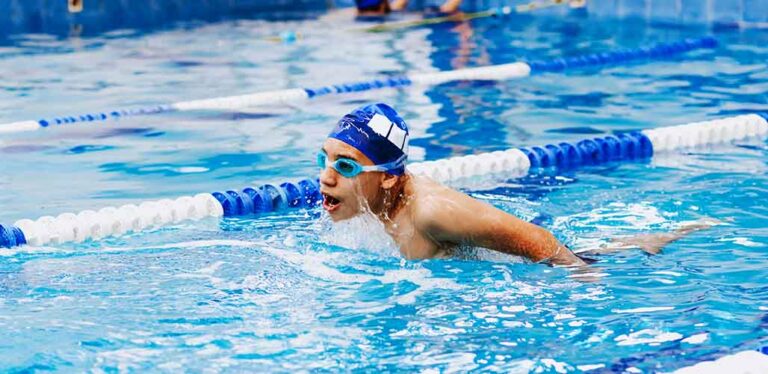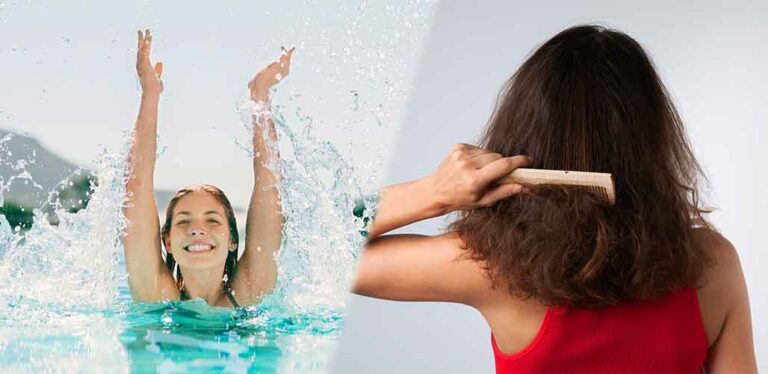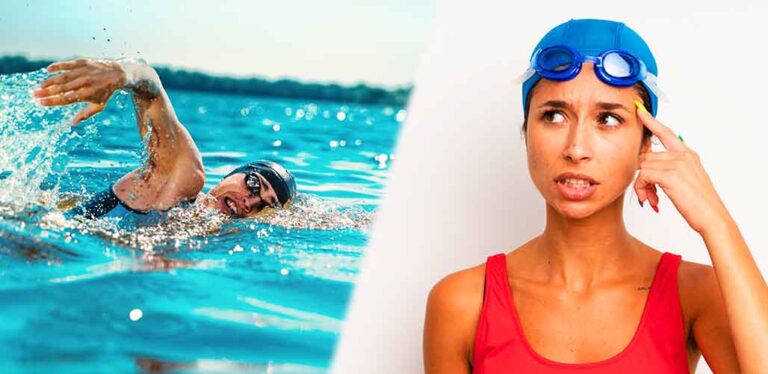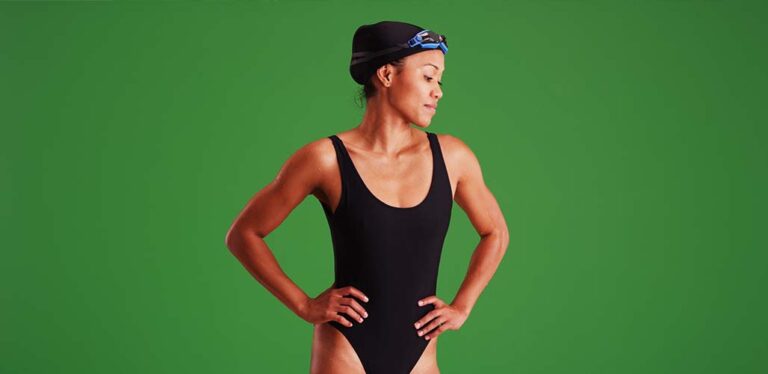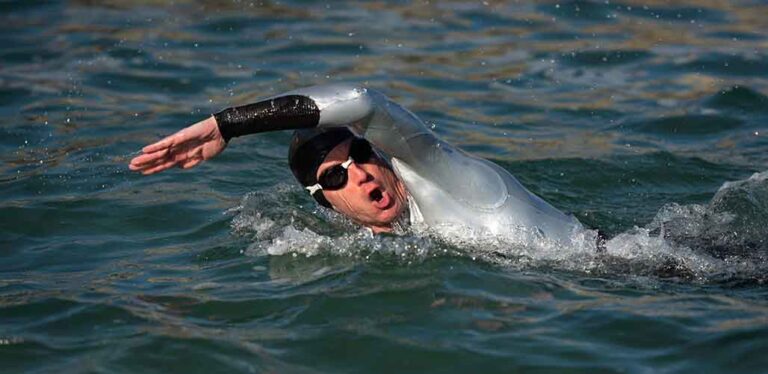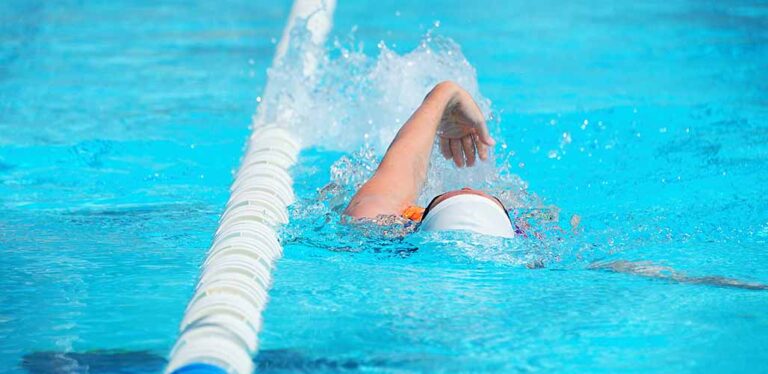Why Does Swimming Make Me Sleepy?
Why does swimming make me sleepy? I started swimming as a way to up my fitness and overall energy, so you can imagine my surprise after my first few lessons when I emerged exhausted from the pool! The interesting phenomena of feeling sleepy or lethargic after getting out of the pool can be chalked up to a few reasons. But, if you are constantly feeling fatigued after a casual swimming session, it’s best to determine the root cause of the issue. In this guide, I’ll take a closer look at the major reasons swimming can make you so tired, whether you need to worry, and how to overcome it.
Contents
- Why does swimming make me sleepy?
- You’re new to swimming
- Swimming is an intense exercise
- Resistance in the water
- The temperature of the water
- Form and technique
- How to overcome swim fatigue
- Can chlorine make you tired?
Why Does Swimming Make Me Sleepy?
Despite water being known to destress the body and promote relaxation, it can also wear you out after a few laps. Swimming is a combination of aerobic and anaerobic exercise. This paired with the cooler temperature of the water, which makes your body work overtime to stay warm.
Luckily, there are ways to reduce this post-swimming sleepiness. Before you know it, you’ll get out of the pool feeling energized and won’t need a caffeine boost or a nap. Swimming is one of the most popular ways to increase physical fitness, especially as individuals age and seek less pressure on their joints. First, let’s take a closer look at 5 major reasons you might feel so sleepy after a swim.
1. You’re New to Swimming
Swimming uses all of the major muscle groups, which can be exhausting if you’re not used to it. If you don’t properly warm up before jumping into the pool, you can feel tired early on in your routine. For those who are new to the sport, using muscles such as abdominals, biceps, triceps, hamstrings, and deltoids simultaneously can leave you feeling fatigued and sore.
If this is the case, you will usually stop feeling so tired as you get used to working out regularly. However, make sure you’re warming up and cooling down properly, as well as getting plenty of rest in between.
2. Swimming is an Intense Aerobic Exercise
When you swim for a minimum of 30 minutes, you’re now entering into aerobic exercise. Your heart rate stays raised for the duration of the activity, as you constantly have to stay in motion. Due to the cool temperatures in the water, your heart rate won’t reach the same levels as it would from land activities.
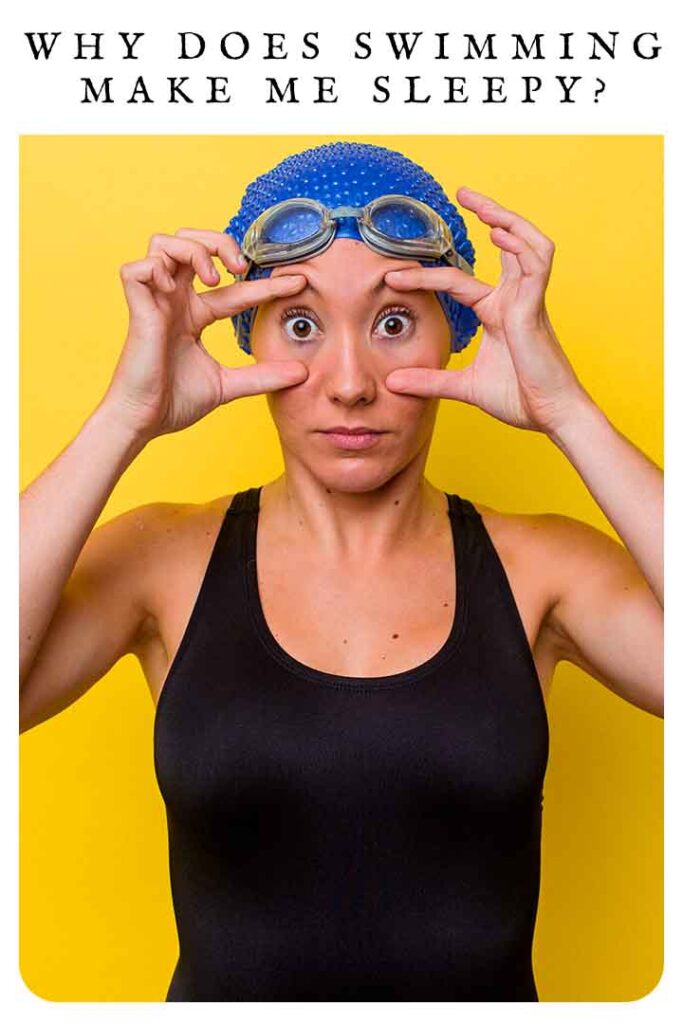
3. Water Provides Resistance
Water requires more resistance than it takes to move on land, meaning that swimmers exert more to move. When combined with the buoyancy of the water, swimming combines both aerobic and anaerobic exercise, which can be fatiguing.
4. The Temperature of the Water
If you’re swimming in cold water, your body is working harder to stay warm. This can cause a minimal level of muscle strain, which can leave you feeling tired after a few laps around an outdoor pool. The ideal temperature for swimming is around 79 degrees Fahrenheit.
5. Your Form and Technique
Form and technique have a lot to do with how tired you feel after a particularly strenuous pool workout as well. If your form leaves something to be desired, you may notice that you grow wearier than other swimmers who share your ability level. Working harder than you need to in the water will inevitably leave you tired due to inefficient mechanics.
How to Overcome Swim Fatigue
If you swim often and you find that the post-swim fatigue has been hitting you hard lately, you’ll want to find ways to ameliorate it in order to continue making progress in the pool. While you can always take a quick power nap after swimming, this can eat into other activities planned during the day. Swimming earlier in the day, as opposed to the late afternoon and evening, can leave you feeling more energized than tired.
Breakfast with a solid serving of protein can help you avoid the post-swim sleepiness. This provides you with a boost of natural energy that helps your metabolism power through exercise with ease. Some people require an energy bar after their workout to help offset the energy they just put out in the water. Packing a healthy snack for a post-swim boost can help alleviate the grogginess you may feel once you dry off.
Getting a full eight hours of sleep the night before swimming can help you get through your workout. If you enter the pool already feeling sleepy, it’s nearly inevitable that you’ll be more tired after the exertion of the activity.
Improving Your Form
If you believe your form may be off in the water, focus on ensuring your body isn’t making unnecessary rotations or you’re not dropping your shoulders too much. This can create extra strain in the water and will leave your energy levels depleted.
Asking an experienced swimmer to take a slow-motion video of you for several laps and then review it with you is an easy way to check your form. If you see things that need alterations, practice with the new technique until you get it down.
Can Chlorine Make You Tired?
A common question after getting out of the community pool and feeling tired is, can chlorine make you sleepier? If you’ve noticed that you don’t feel as tired when swimming in the lake or the salty ocean water, this seems to be a reasonable culprit. But, it’s highly unlikely.
Chlorine is one of the most commonly used chemicals in the United States, meaning that you’ll likely come into contact with it at one point or another even if you don’t swim. Low exposure to chlorine can result in mild symptoms such as irritated and itchy eyes and skin.
Pool water should be kept at a pH of 7.2-7.8 and the chlorine concentration should be around 1 ppm in recreational pools. This isn’t enough of a concentration to lead to even mild poisoning, so swimmers shouldn’t be fatigued due to the chemical while doing laps. Regardless, chlorine should be tested regularly to ensure that it’s at the proper concentration to kill off germs and not high enough to cause symptoms.
Why Does Swimming Make Me Sleepy? A Summary
It’s not unusual for swimmers to feel a bit sleepy after an hour or two of swimming. Though you’re not raising your heart rate in the way you would if you ran around a track, you’re still exerting a significant amount of energy. There are ways to combat this through trial and error.
Failing to get enough sleep or consuming enough protein before your workout can leave you feeling lifeless and in need of a nap after your swim. Keeping healthy, protein-packed snacks on hand is an easy way to combat the allure of a post-swim nap. And, if you’re swimming with improper form, you may find that you get tired quicker than others in the pool. So, keep working to perfect your stroke!
More Problems When Swimming
- How to prevent headaches when swimming
- Why am I starving after a swim?
- Fixing bad posture from swimming
References
- ‘Water Treatment and Testing’, Centers for Disease Control and Prevention

